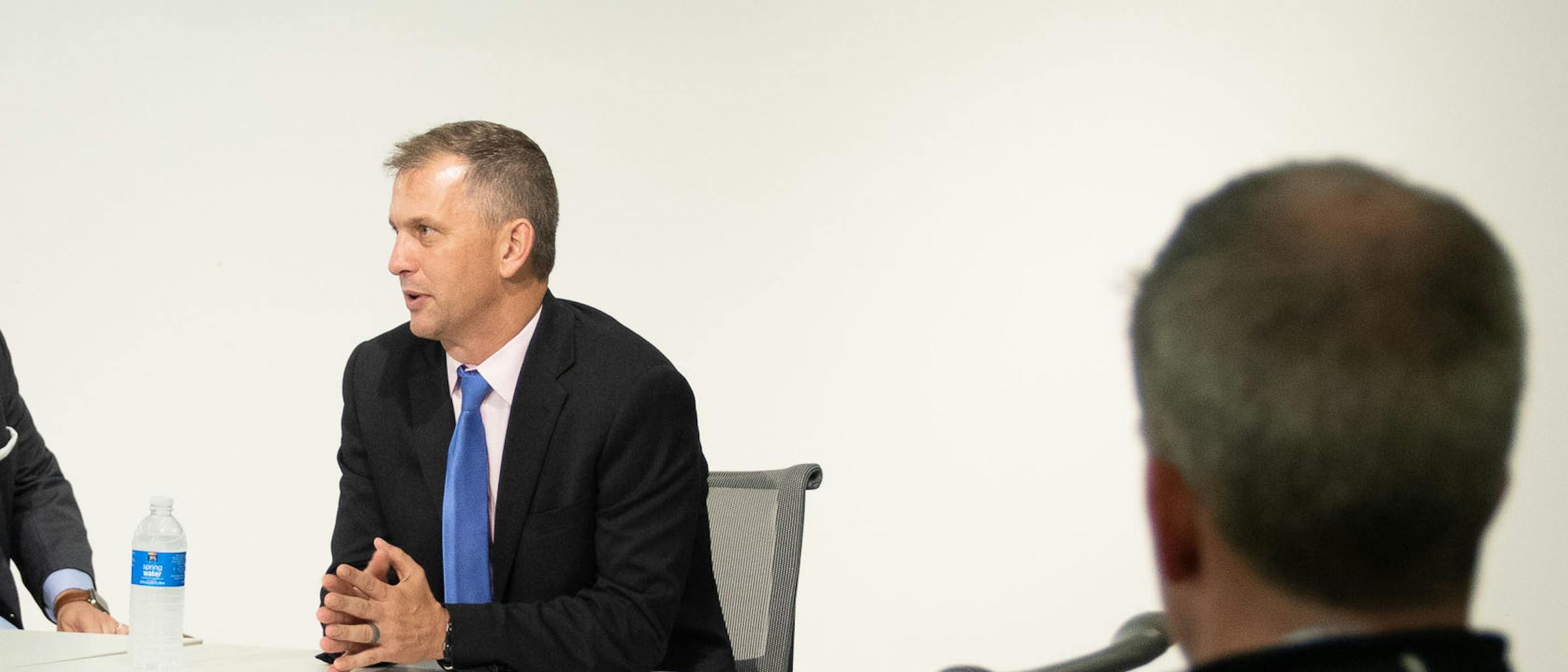A Conversation with Congressional Candidate Sean Casten
Decisions made in Washington can have profound effects on our healthcare system — everything from biomedical research, to insurance and the delivery of care, to the factors that help shape overall health and wellbeing.
In advance of the 2018 midterm elections, MATTER, the Health Care Council of Chicago (HC3) and the Illinois Biotechnology Innovation Organization (iBIO) extended invitations to congressional representatives and major-party candidates from Chicago-area congressional districts to discuss their positions on healthcare with our communities.
Congressional candidate Sean Casten, a Democrat seeking the 6th Congressional District in Illinois, joined us at MATTER on September 27 for a conversation with members of the MATTER, HC3 and iBIO communities. He shared his views and positions on healthcare policy and responded to questions from the audience. Below are a few highlights from the conversation.
On being a first-time politician.
“There are so many people standing up right now and saying: This is the time to become politically engaged. It’s something to be optimistic about.”
Part of the job: learning from others.
“The best thing about the job, quite frankly, is being able to go out and learn from interesting people. If I know nothing else about Congress, it’s that of the hundred things you have to vote on, you can maybe be an expert on two or three. I’m glad to have the opportunity to learn from some folks about different things.”
Looking globally for examples of universal coverage.
“I think the optimal solution, and there are plenty of global examples, is universal healthcare with consumer choice — not necessarily a single payer, one-size-fits-all model, but making sure everyone is covered. The handful of countries that take this approach have better, cheaper outcomes than everybody else. That means defending, preserving and expanding the Affordable Care Act (ACA).”
Closing gaps in access to care.
“As an employer, it always drove me crazy that the employees in Massachusetts did not have the same health options as our employees in Illinois because the markets are segmented at the state level. I think it would be nice to have national expansions along with a public option.
“I think realistically, you have to have some coverage for people who can’t afford it. Even with a public option and employer plans, there are going to be some people who can’t or don’t work and don’t have the wealth to buy in. There probably has to be some expansion of Medicare and/or Medicaid to cover the gaps and make sure we get to universal coverage. . . We pay for these people right now, but we pay for them expensively on the backend, instead of cheaply through preventative care on the front end. Directionally, that’s where we ought to get to. The ACA got us a lot closer [to universal coverage] than where we were.”
Read the recaps from previous conversations in this series: Congresswoman Robin Kelly (D-IL, 2nd District), Congressman Brad Schneider (D-IL, 10th District), Congressman Mike Quigley (D-IL, 5th District), Congressman Peter Roskam (R-IL, 6th District) and Congressman Raja Krishnamoorthi (D-IL, 8th District).



